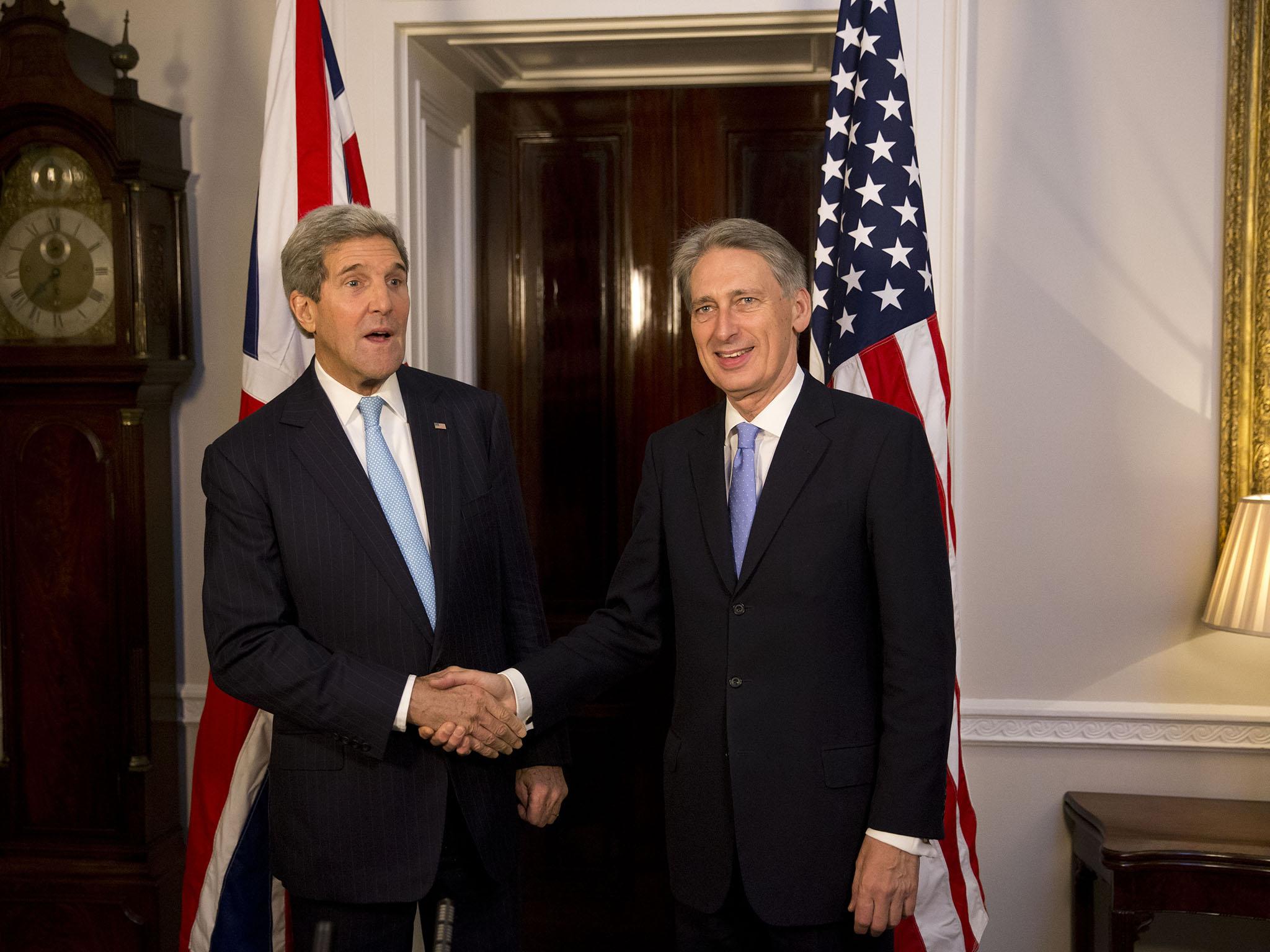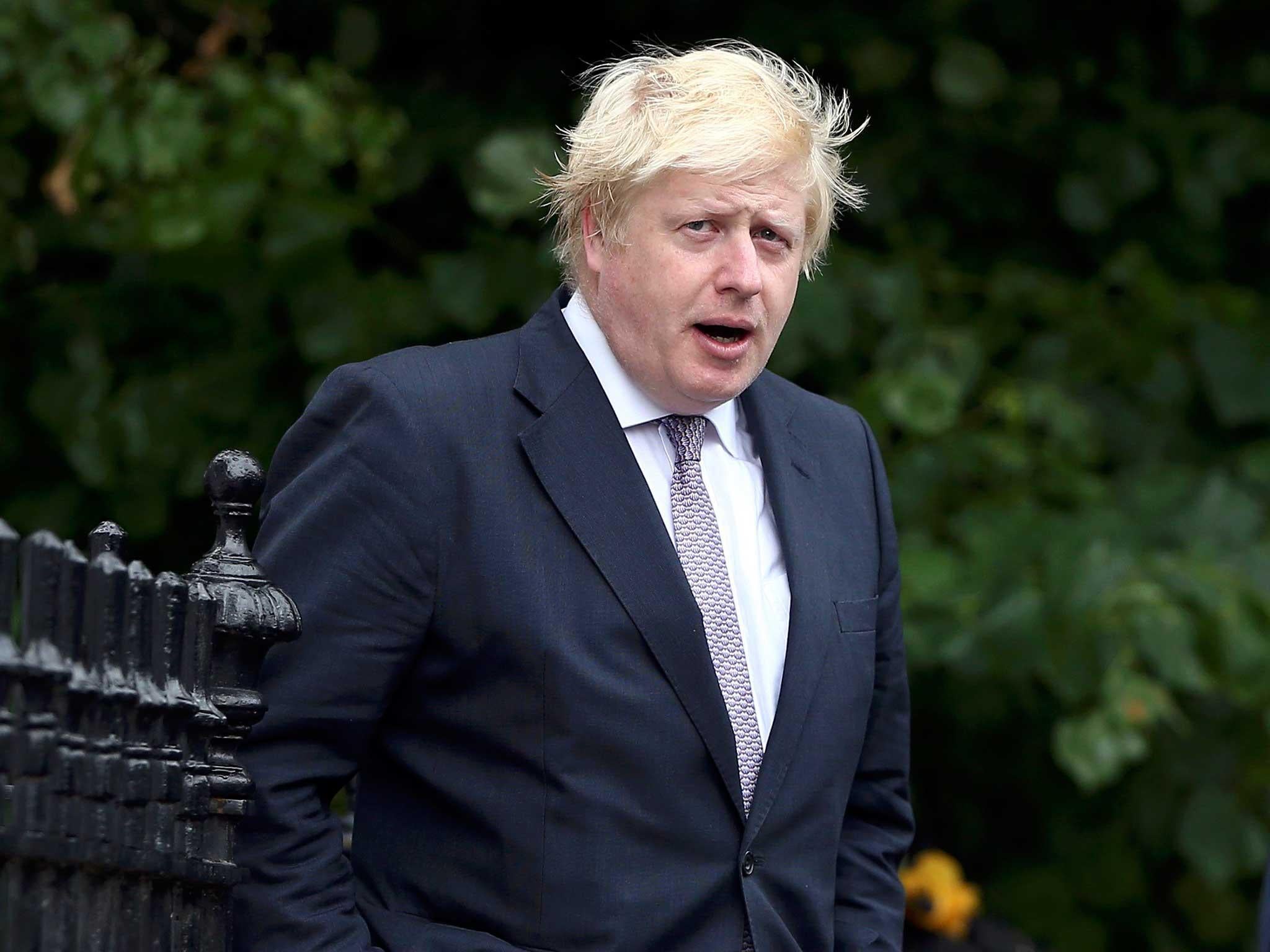Can Britain’s ‘special relationship’ with the US survive outside the EU?
Britain has long been America’s bridge into Europe. Now it will be looking elsewhere to find its footing, writes Kim Sengupta

Your support helps us to tell the story
From reproductive rights to climate change to Big Tech, The Independent is on the ground when the story is developing. Whether it's investigating the financials of Elon Musk's pro-Trump PAC or producing our latest documentary, 'The A Word', which shines a light on the American women fighting for reproductive rights, we know how important it is to parse out the facts from the messaging.
At such a critical moment in US history, we need reporters on the ground. Your donation allows us to keep sending journalists to speak to both sides of the story.
The Independent is trusted by Americans across the entire political spectrum. And unlike many other quality news outlets, we choose not to lock Americans out of our reporting and analysis with paywalls. We believe quality journalism should be available to everyone, paid for by those who can afford it.
Your support makes all the difference.John Kerry was engaged in shuttle diplomacy, visiting European leaders, flying into London to meet David Cameron. The US Secretary of State is used to this kind of a hectic schedule; but normally in Middle-East negotiations. The fact that he was now having to do this over Brexit is an indication of the alarm in Washington over what is unfolding.
Mr Kerry gave repeated warnings that negotiations between the UK and the European Union should not take place in a spirit of anger, frustration and revenge; the danger of “cutting off one’s nose to spite one’s face”.
He also publicly insisted that the “special relationship” between America and Britain would be as strong as ever. But few, including US and UK officials, believe it can continue as before. Britain has traditionally been America’s bridge into the Europe, an ally on issues of foreign policy, security and trade. Brexit means that Britain will simply not have that presence and influence any longer and the US is readjusting its policies towards the EU in light of that reality.
Barack Obama had wanted to be the president who ended America’s wars in the Middle East and South Asia and had declared that there would be a tilt to the Pacific Rim in foreign and defence policies. But, Isis, al-Qaeda and a resurgent Taliban has made disengagement from conflict against Islamists difficult. Now he finds himself facing upheaval in Europe.
Under these circumstances, ask American officials, where is the US expected to focus, the 27 countries forming the world’s second largest economy, or the one which chose to leave that behind? When President Obama said that the UK will be at the back of the queue for trade deals with America if it left the EU he may have been intended to bolster David Cameron in the referendum, but it was also stating where America’s priority will lie. Boris Johnson’s suggestion at the time that President Obama was influenced by his “part Kenyan” heritage and ancestral dislike of the British Empire was viewed with distaste by the US administration.
Mr Obama will leave office soon. As future Prime Minister, Mr Johnson may have hoped that Donald Trump, who says he supports Brexit, would be an ally. American officials take satisfaction in pointing out current polling figures which puts Mr Trump way behind Hillary Clinton. They also say that what has happened in Britain will make some American voters who were thinking about backing Mr Trump very aware of the pitfalls of a protest vote.

As the international financial crisis continued with $3trn wiped off shares worldside, following the referendum vote, President Obama tried a note of reassurance, decrying the “hysteria” which has followed the Brexit vote, saying that European integration has just been “put on pause”.
But trading continued to be volatile and the fact remains that Britain’s retreat from Europe has come at a difficult time for the US. There is worry in Washington that the EU will start wavering on sanctions imposed on Russia after Vladimir Putin’s intervention in Ukraine, and at a time when it is trying to get European states to spend more on defence. And, importantly, the US and the EU is negotiating a multi-billion pounds business deal, the Transatlantic Trade and Investment Partnership, in which Washington was depending on Britain to be a valuable interlocutor. That is no longer going to be the case.
The close security cooperation between the US and UK is likely to continue, especially in intelligence sharing. The EU has traditionally been excluded from aspects of the exchange of intelligence which takes place between English speaking “Five Eyes” states – US, UK, Canada, Australia and New Zealand.

Some believe that Britain will now want to further bolster the security ties with America. Admiral James Stavridis of the US Navy, a former head of Nato forces in Europe was of the view that “a new British government will presumably be a very motivated Nato partner”.
“Now that it has chosen to become a relatively marginal economic player on the international stage, it will look for new ways to demonstrate value in its partnership with the United States if it hopes to maintain anything like the ‘special relationship’ it has become accustomed to and dependant on.”
But there is a problem with this – the lack of money which comes from becoming “a relatively marginal economic player”. The financial hit which will come with Brexit will mean budget cuts, and defence is one of the sectors likely to suffer. Britain is unlikely to be able to meet some defence pledges already made, let alone make new ones. A whole raft of defence programmes, from the Lockheed Martin F-35 Lightning II for the aircraft carriers being built, to replacement of the Trident nuclear deterrent system, will come under scrutiny.
The slide of sterling will be a big factor in this. “Considering that about 40 per cent of the big defence programmes are tied to the dollar, they are going to have to think hard,” said Francis Tusa, of the journal Defence Analysis.
Germany, on the other hand, is carrying out a significant hike in defence spending, raising it by 6.2 per cent over the next five years. US officials say it is only natural that stronger ties will be built with Germany, Europe’s largest economy. Berlin has taken the lead in the eurozone crisis. Chancellor Angela Merkel played an important role in setting up the Minsk agreement which brought a ceasefire in the Ukraine conflict; David Cameron, in contrast, faced criticism for not being involved with Minsk. Germany also took the lead in the Syrian refugee crisis, although some American officials, like many others elsewhere, question whether Mrs Merkel’s initial blanket invitation to refugees was wise.
There was a definite froideur between Washington and Berlin in 2013 with the revelation that America’s National Security Agency had been tapping Mrs Merkel’s phone and those of some of her ministers. Peter Wittig, the German ambassador to the US maintains that the unpleasant episode has been put behind them. “We have extraordinarily close relations on a government-to-government level; there's very little daylight in all the major issues that we are facing,“ he said. The relationship will only intensify he added, because ”the management of Brexit is unfolding”.
But problems still remain. The German Foreign Minister, Frank-Walter Steinmeier, irritated Washington by claiming that recent Nato exercises in eastern Europe, supposedly to deter Russian adventurism, was “sabre-rattling warmongering”.
Relations between Washington and Paris have progressed from the time of George W Bush’s Iraq invasion and the abuse directed at “cheese eating surrender monkeys”. There was US praise for the role played by French forces in Afghanistan. US officials have been pointing out more frequently than before that France is, of course, their oldest ally since they helped out at the time of the American War of Independence.
At the end, it is Britain disqualifying itself from the relationship it had with America, rather than an obvious European candidate emerging as replacement, which is the deciding factor. As Peter Westmacott, until recently the British ambassador to Washington, acknowledged: “I worry we will have less clout on our own. In the future we won’t have as much influence on Europe’s response to Putin’s transgressions, Iran’s nuclear ambitions, or EU foreign and security policy. And we’ll be less able to ensure it is US friendly.”
Join our commenting forum
Join thought-provoking conversations, follow other Independent readers and see their replies
Comments